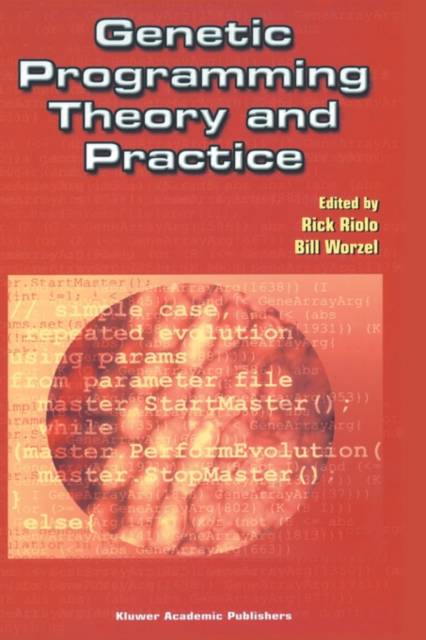
- Afhalen na 1 uur in een winkel met voorraad
- Gratis thuislevering in België vanaf € 30
- Ruim aanbod met 7 miljoen producten
- Afhalen na 1 uur in een winkel met voorraad
- Gratis thuislevering in België vanaf € 30
- Ruim aanbod met 7 miljoen producten
Zoeken
Genetic Programming Theory and Practice
€ 202,95
+ 405 punten
Omschrijving
Genetic Programming Theory and Practice explores the emerging interaction between theory and practice in the cutting-edge, machine learning method of Genetic Programming (GP). The material contained in this contributed volume was developed from a workshop at the University of Michigan's Center for the Study of Complex Systems where an international group of genetic programming theorists and practitioners met to examine how GP theory informs practice and how GP practice impacts GP theory. The contributions cover the full spectrum of this relationship and are written by leading GP theorists from major universities, as well as active practitioners from leading industries and businesses. Chapters include such topics as John Koza's development of human-competitive electronic circuit designs; David Goldberg's application of "competent GA" methodology to GP; Jason Daida's discovery of a new set of factors underlying the dynamics of GP starting from applied research; and Stephen Freeland's essay on the lessons of biology for GP and the potential impact of GP on evolutionary theory.
Specificaties
Betrokkenen
- Uitgeverij:
Inhoud
- Aantal bladzijden:
- 317
- Taal:
- Engels
- Reeks:
- Reeksnummer:
- nr. 6
Eigenschappen
- Productcode (EAN):
- 9781402075810
- Verschijningsdatum:
- 30/11/2003
- Uitvoering:
- Hardcover
- Formaat:
- Genaaid
- Afmetingen:
- 179 mm x 229 mm
- Gewicht:
- 689 g

Alleen bij Standaard Boekhandel
+ 405 punten op je klantenkaart van Standaard Boekhandel
Beoordelingen
We publiceren alleen reviews die voldoen aan de voorwaarden voor reviews. Bekijk onze voorwaarden voor reviews.










